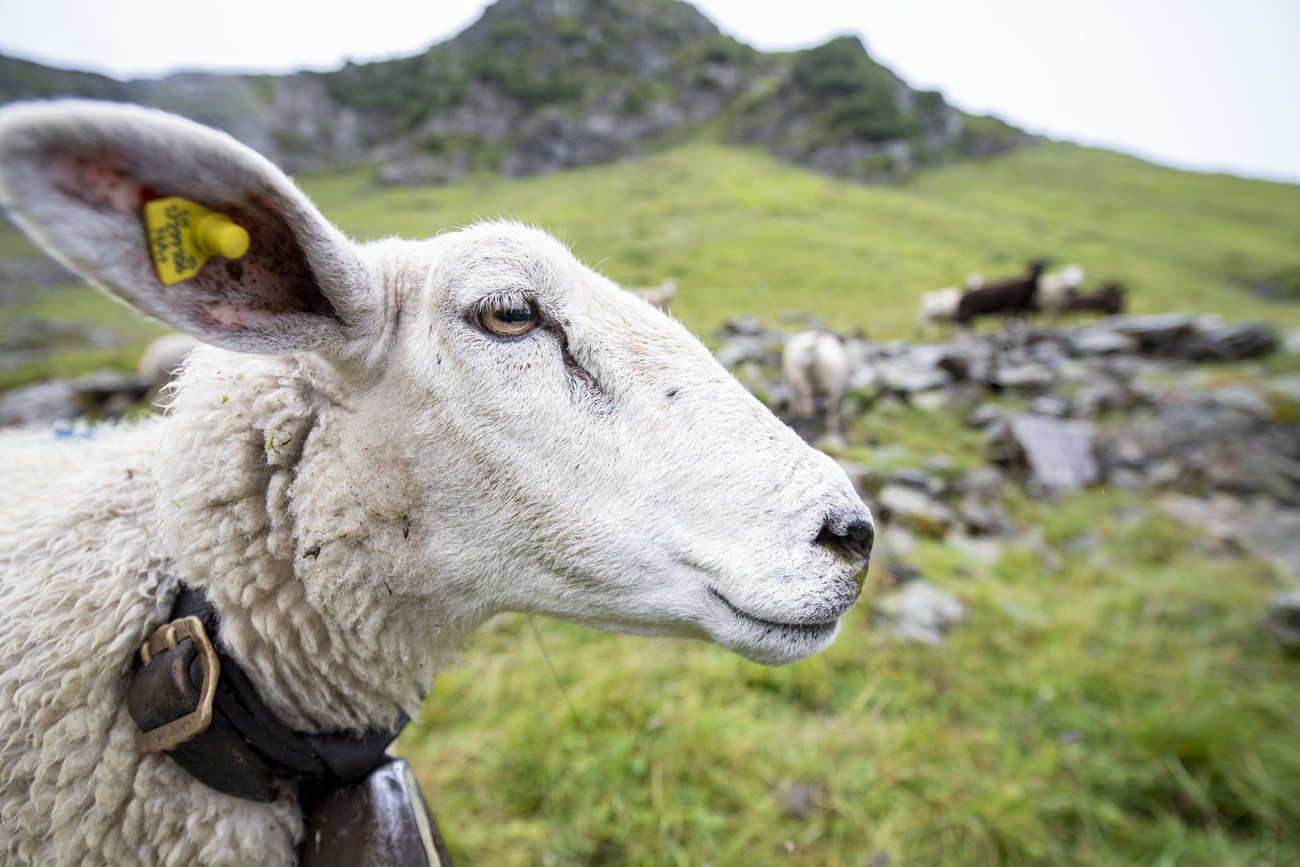
Swiss forced to throw away tonnes of sheep’s wool

The warehouses are full and demand for wool products has collapsed. Swisswool, the largest Swiss wool processor, is not accepting any wool for the first time this spring. For many sheep farmers, the only option is to get rid of the wool.
Traditionally, sheep in Switzerland are shorn mid-May or after the Schafkälte, a Swiss meteorological phenomenon when the weather turns cold and damp for a few days in June. Many sheep farmers deliver the resulting wool to the Swisswool company in Buchs, canton St Gallen.
This spring, however, Switzerland’s largest buyer is not accepting any wool: its warehouses are full, and the stock has to be reduced.
In Switzerland, sheep must be shorn at least once a year for animal welfare reasons. This means costs for farmers, as the proceeds from the sheep’s wool do not cover the cost of shearing. The wool is an unpopular by-product.
+ A woolly tale of everyday Swiss culture
They earn money with the meat and milk from the animals. Delivering the wool to Swisswool, on the other hand, is above all convenient, says Matthias Rüesch, managing director of the St Gallen Sheep Breeders’ Association. “There is no other company that accepts wool on a large scale and pays cash for it,” he said.
Depending on the quality of the wool, Swisswool pays up to CHF1.50 ($1.80) per kilo. A welcome contribution towards expenses.
Where to put the wool?
This spring, up to 80 tonnes of sheep’s wool is likely to be disposed of for a fee due to the acceptance freeze. According to Rüesch, storing the wool until a later collection date would not be attractive due to the low proceeds.
It’s not a nice situation, says Swisswool managing director Friedrich Baur. “We would like to organise the wool collections as we have done for the past 14 years.” However, the freeze is necessary in order to reduce the approximately 400 tonnes of wool in the warehouse, he said.
The raw material is piling up there because demand – after a boom during the Covid pandemic – has fallen sharply, he said. “2024 was catastrophic. Demand completely collapsed.”
In addition, Swisswool’s long-standing laundry in Belgium had to unexpectedly cease operations due to financial problems. However, Baur is confident that another European partner can be found before the shearing in autumn.
The wool products business itself is not jeopardised, Baur said. Swiss wool is mainly processed into insulation material or mattress fillings, he explained. That is a stable basis. Nevertheless, sheep farmers are now feeling the effects of the temporary halt in acceptance.
Translated from German by DeepL/ts
How we work
We select the most relevant news for an international audience and use automatic translation tools such as DeepL to translate them into English. A journalist then briefly reviews the translation for clarity and accuracy before publication. Providing you with automatically translated news gives us the time to write more in-depth articles. The news stories we select have been written and carefully fact-checked by an external editorial team from news agencies such as Bloomberg or Keystone.
Did you find this explanation helpful? Please fill out the short survey below to help us understand your needs.

In compliance with the JTI standards
More: SWI swissinfo.ch certified by the Journalism Trust Initiative













































You can find an overview of ongoing debates with our journalists here . Please join us!
If you want to start a conversation about a topic raised in this article or want to report factual errors, email us at english@swissinfo.ch.